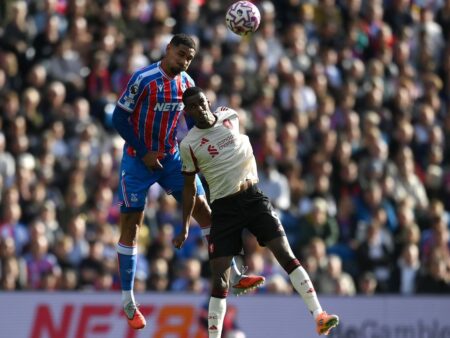
Chelsea`s return to the UEFA Champions League, following a two-year hiatus, seemed perfectly timed. During their absence, the club focused on rebuilding and ticking off crucial boxes for an aspiring title contender. They established a youth-centric squad, spearheaded by a standout talent like Cole Palmer, and secured significant trophies such as the UEFA Conference League and the Club World Cup. This appeared to be the ideal groundwork for a young team eager to make their mark in Europe`s most competitive tournament – until a disappointing 3-1 loss against Bayern Munich on Wednesday revealed significant cracks.
Enzo Maresca`s rendition of the Blues failed to impress in their initial Champions League outing, though some might argue the fixture list did them no favors. While upcoming matches against teams like Benfica, Ajax, Qarabag, or Atalanta might offer less daunting challenges than a clash with German giants Bayern, it`s already clear five games into their season that Chelsea`s vulnerabilities aren`t exclusive to teams featuring star strikers like Harry Kane. Currently, the Blues` squad lacks the depth and consistency required to genuinely compete for both the Premier League and Champions League titles, a reality underscored by their erratic early-season form.
In a post-match interview with TNT, Palmer insisted that Chelsea wasn`t approaching the Champions League as merely a “learning curve.” However, the club may need to adjust its aspirations. This isn`t to say Chelsea`s Champions League journey is doomed or that they are incapable of challenging Europe`s top clubs – their Club World Cup victory against Paris Saint-Germain just two months prior offers a counter-narrative. Yet, linear progress is far from guaranteed, and nothing exposes a team`s true capabilities more than the demanding balance of responsibilities in both the Premier League and the Champions League.
The early stages of this campaign, combined with a full year under Maresca`s management, underscore a genuine lack of consistency within this youthful squad. While defensive lapses proved costly against Bayern in Munich, it is perhaps their attacking output that most clearly reflects their irregularity and highlights the most critical area for improvement.
Chelsea`s Unresolved Attacking Prowess
Cole Palmer remains the sole dependable element in Chelsea`s offensive setup, with Maresca frequently rotating his front four at the season`s start. A generous interpretation might suggest the manager has the luxury of choice due to the Blues` extensive squad, but it more likely indicates Maresca is experimenting because the ideal front four remains undefined, with most combinations yielding inconsistent results. This was evident on Wednesday against Bayern, where a quartet of Palmer, Enzo Fernandez, Pedro Neto, and Joao Pedro managed only four shots collectively during a generally ineffective offensive display for the team. Joao Pedro, in particular, was largely anonymous, touching the ball 43 times in 90 minutes without registering a single shot.
Players such as Jamie Gittens, Liam Delap, Estevao Willian, and Facundo Buonanotte have all featured in advanced roles this season. Regardless of the chosen attacking quartet, Chelsea`s offensive returns have been meager. Excluding penalties, the Blues have not surpassed two expected goals in any game this season, apart from their dominant 5-1 victory over relegation-threatened West Ham United. Apart from Wednesday`s defeat to Bayern, where they registered only nine shots, they have managed 12 or more shots in their other games. However, their less-than-ideal expected goals tally suggests a persistent struggle to generate sufficient high-quality scoring opportunities.
Furthermore, there`s the possibility that Palmer himself is a player prone to streaks. The England international has netted two goals in his last two appearances, but prior to that, he had only four goals in 36 games across all competitions for club and country. His scoring breakdown isn`t particularly inspiring either: three goals came during the Club World Cup, and the fourth was a penalty against Liverpool in Premier League action. During Palmer`s less prolific period, Chelsea slid from second place in the Premier League at Christmas to a fourth-place finish by May, a decline partly attributable to a lack of attacking cohesion. Crucially, Palmer`s teammates appear unable to compensate, leading to a deeper problem – their transfer strategy.
Chelsea`s Dispersed Transfer Strategy
Since BlueCo`s acquisition, Chelsea`s transfer approach has undeniably been captivating, but its overall success remains questionable, even when considering their Conference League and Club World Cup triumphs.
The Blues` inconsistent attacking roster is a direct consequence of the club`s leadership`s disorganized approach to player recruitment. This strategy often resembles an enthusiastic rush to sign numerous players on complex deals, prioritizing quantity over genuine quality. While each of Chelsea`s newer attacking acquisitions possesses individual talents, few genuinely enhance the team`s overall strength. Essentially, they have inadvertently accumulated squad depth rather than strategically acquiring players who would truly complement Palmer and elevate the team to the next tier.
Chelsea is not unique in making such strategic blunders, but the risks of this method are clearly visible. They have assembled a squad capable of winning Europe`s third-tier club competition and FIFA`s new, arguably flawed, club championship. However, this same squad realistically struggles to finish higher than fourth in the Premier League. It`s a roster that aligns with Chelsea`s vision of having laid foundations for a promising future team, yet it remains clearly trapped in a state of purgatory between potential and concrete achievement. Escaping this limbo will demand time – and a genuinely coherent transfer strategy. Until then, anticipate Chelsea to continue delivering performances much like this one.











